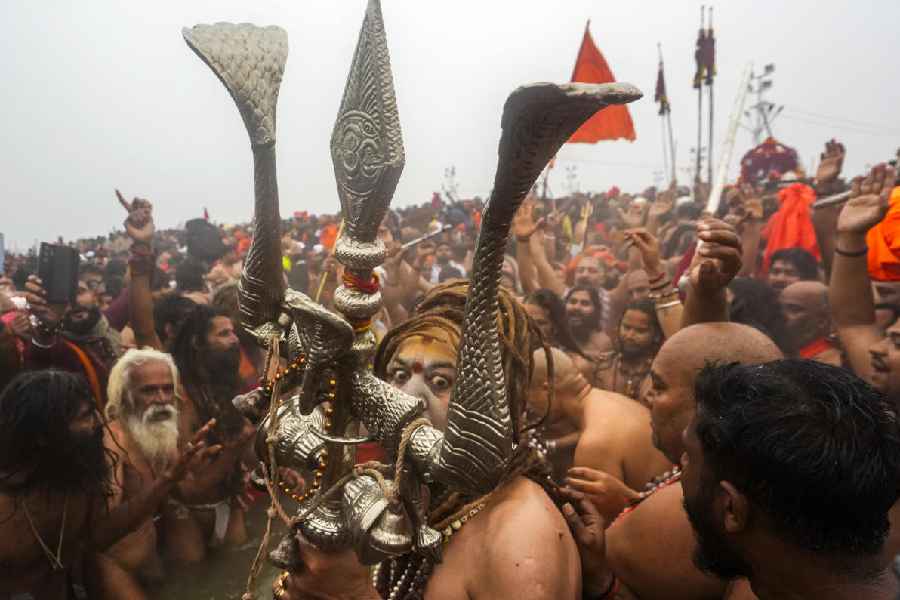 Monday, 20 January 2025
Monday, 20 January 2025
 Monday, 20 January 2025
Monday, 20 January 2025
Rajasthan Assembly Speaker Vasudev Devnani recently claimed that India, particularly Rajasthan, offers a "safer” environment for women compared to other countries.
“In my experience, the environment for women is safer in India and Rajasthan than in other countries,” he told PTI on December 6 after attending a Commonwealth Parliamentary Association conference in Sydney.
“The condition of women is far better than other nations, particularly in the context of equality. No other nation has such schemes and programmes like India. I highlighted schemes like Beti Bachao Beti Padhao, PM Matri Matru Vandan Yojna in detail which received appreciation from the delegates,” he said.
Per the Georgetown Institute for Women, Peace and Security’s 2023 edition of the global Women Peace and Security Index aka WPS Index, India ranks 128 out of 177 countries in terms of women’s inclusion, justice, and security. In the 2017-18 WPS Index, India was at 131.
The Narendra Modi government regularly scoffs at international surveys about such things, but official data about crimes against women as well as family surveys also fly in the face of Devnani’s claims.
In 2022, the crime rate against women in India stood at 66.4 per lakh population, according to statistics from the National Crime Records Bureau (NCRB). The NCRB report noted a 4 per cent increase in crimes against women over the previous year.
Rajasthan was the third in the country in terms of reported cases of crimes against women with 45,058 cases, according to the NCRB report for 2022, the latest such official data available. First was Uttar Pradesh (65,743) and Maharashtra (45,331) was second.
India recorded 31,516 rape cases in 2022. Rajasthan had the highest number – 5,399 cases – followed by Uttar Pradesh (3,690) and Madhya Pradesh (3,029).
Delhi recorded the highest crime rate – (number of reported crimes/population) x 100,000 – against women at 144.4, with Rajasthan (115.1) and Telangana (117) at second and third position respectively.
Devnani’s glowing endorsement of the government’s performance thus raises a question: Whose reality is he describing?
“Certainly not the craftswomen from Rajasthan’s arid regions, struggling for basic survival amid water shortages and marginalization,” said Garima Dhabhai, a faculty member at Presidency University, Kolkata whose work focuses on heritage and urban spaces in Rajasthan, especially Jaipur.
“There is a larger political rhetoric in what any minister claims about women empowerment in the country. There is a very narrow definition of empowerment. Giving cash from the government looks like philanthropy, but their lifestyle development is difficult unless the government starts to take empowering women seriously," Dhabhai said.
Even as Devnani presented India’s “safer environment” at a global conference where delegates from 53 other nations were present, the NCRB report of 2022 reveals that nearly 90 women are raped in India per day.
And these are reported cases, which experts say is the proverbial tip of the iceberg.
As far as a more protective environment is concerned, according to the National Family Health Survey-5, 25.4 per cent women aged between 20 and 24 years in Rajasthan were married before the age of 18 years in 2024.
This is not a new phenomenon, According to a research published by the Children and Youth Services Review, in 2011, 32 per cent of women in Rajasthan, married in the preceding four years, were child brides.
Govind Singh Rathore, founder of Jodhpur-based women’s organisation in Sambhali Trust, said Rajasthan is still grappling with the deeply entrenched custom of Aata-Saata. It involves the reciprocal marriage of a family’s daughter to a man from the bride’s family of their son or nephew, turning women into transactional pawns.
“It’s still very common. My own family members have been impacted by it,” Rathore said. "Women as young as 19 are married to men in their 50s or 60s, and their lives often spiral into cycles of abuse, violence, and neglect.”
The custom thrives in Rajasthan’s economically vulnerable households, he said, where – like in most places in India – even the faintest dissent by women is futile.
“I was married at 15, and my wife was just 14,” Rathore said. “ Later, we had a social marriage when I was 19 and she was 18.”
He recalled a German visitor’s observation: “There are no adolescent girls in Rajasthan!” Many, he said, are burdened, silenced and forced into the bleakness of adulthood from childhood.
Devnani’s claim that women in Rajasthan enjoy greater equality is also ridiculous.
Indira Pancholi, a researcher and advocate with the Ajmer-based women’s organisation Mahila Jan Adhikar Samiti (MJAS), said in the tehsil areas many families get a document signed by the panchayat pradhan.
Since a marriage registrar is not available the kagzi is the only document that people who do Aata Saata bank on, Pancholi explained.
“In most cases the boys refuse forced marriage [later]. In such cases the girls are stranded and there's no legal procedure for their protection then,” she explained.“For anything to get better, firstly addressing poverty and creating employment opportunities are critical.”
Ajmer happens to be Rajasthan Assembly Speaker Devnani’s hometown.
Dhabhai underlined that the focus on elite voices skews the narrative in Rajasthan. Rural women, who form the backbone of the state’s crafts and agricultural sectors, are rarely heard in policy discussions or media coverage, she said.
"That's the rhetoric of equality... that’s not the lived reality of most women in Rajasthan," she said about Devnani’s claims.
Crime and child marriages apart, even menstrual health and hygiene awareness remains a taboo in many parts of India.
"While it can't be denied that women in Rajasthan have been facing systemic neglect for ages now, some central policies on menstrual health are a welcome step," said Arumita Mitra, an activist working on menstrual health in rural India.
(All pictures are sourced by The Telegraph Online)







